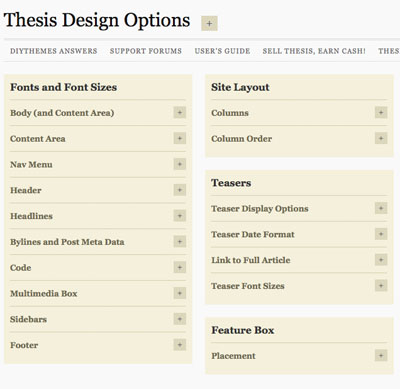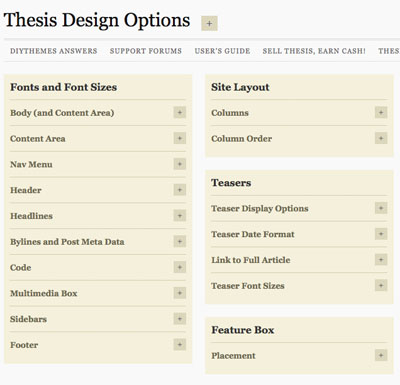Blog
Review of Thesis WordPress Framework
They say that you should never work for friends or family (or maybe I just say that?), but when Andrew Miller of Your Search Advisor asked me if I could redesign his website and his brand identity I threw caution to the wind. Having worked with Andrew before and having a great respect for his knowledge and approach to internet marketing, I knew that this would be an opportunity to collaborate and build upon each others ideas when developing the site. One of the requests that Andrew had was that we use WordPress (no issues there, I have been developing a lot of WordPress CMS based sites lately) as well as the Thesis Framework.
What is Thesis?
 Thesis is a theme and framework for the WordPress platform. Andrew had used it before for some client sites and liked the features that it contained. In a nutshell it gives a wide range of controls and options through the WordPress admin interface, so that a user has more control over their site with out a developers assistance.
Thesis is a theme and framework for the WordPress platform. Andrew had used it before for some client sites and liked the features that it contained. In a nutshell it gives a wide range of controls and options through the WordPress admin interface, so that a user has more control over their site with out a developers assistance.
It is partially a theme, as it has it’s own customizable design. However it also functions as a framework as it has the ability to be extended and built upon. This way you can get the new and latest versions of the thesis theme as it is released with out worrying that it will negate or overwrite the work you have done to the site thus far.
What are the benefits of Thesis?
Thesis is easy to install and configure. Simply uploading it into your themes folder and activating it will give you a few new control panels that have 90% of the functionality and control you will need. Beyond that there are two files, a custom css file and a custom functions file that will allow you to customize and extend the site in any way that you see fit.
After working with the framework I found a few core benefits of Thesis from a designer / developers standpoint:
- Giving the user a bit more control reduces support time and ongoing tweaks / alterations
- Built in SEO tools such as meta data, titles, etc…
- Easy control of typography for the designer as well as end user
- All of the styling and templates are in one place (the custom folder)
- Easy image control with in pages and posts
What are the drawbacks of Thesis?

The only major item I couldn’t find a good way to accomplish in Thesis was giving the user control over what template they would use. This is something that a traditional WordPress install can do very easily.
Finally the theme is not free so it does increase development costs even if you do pass it on to the end client. While it is not expensive, it is a significant draw back from the completely free installation of WordPress.
Overall
Thesis is a great option for basic WordPress CMS websites. After your first site design and development it will reduce your time spent and leave you with happier clients.
If you need to develop a complex and intricate WordPress website you may want to stick to the conventional WordPress installation.